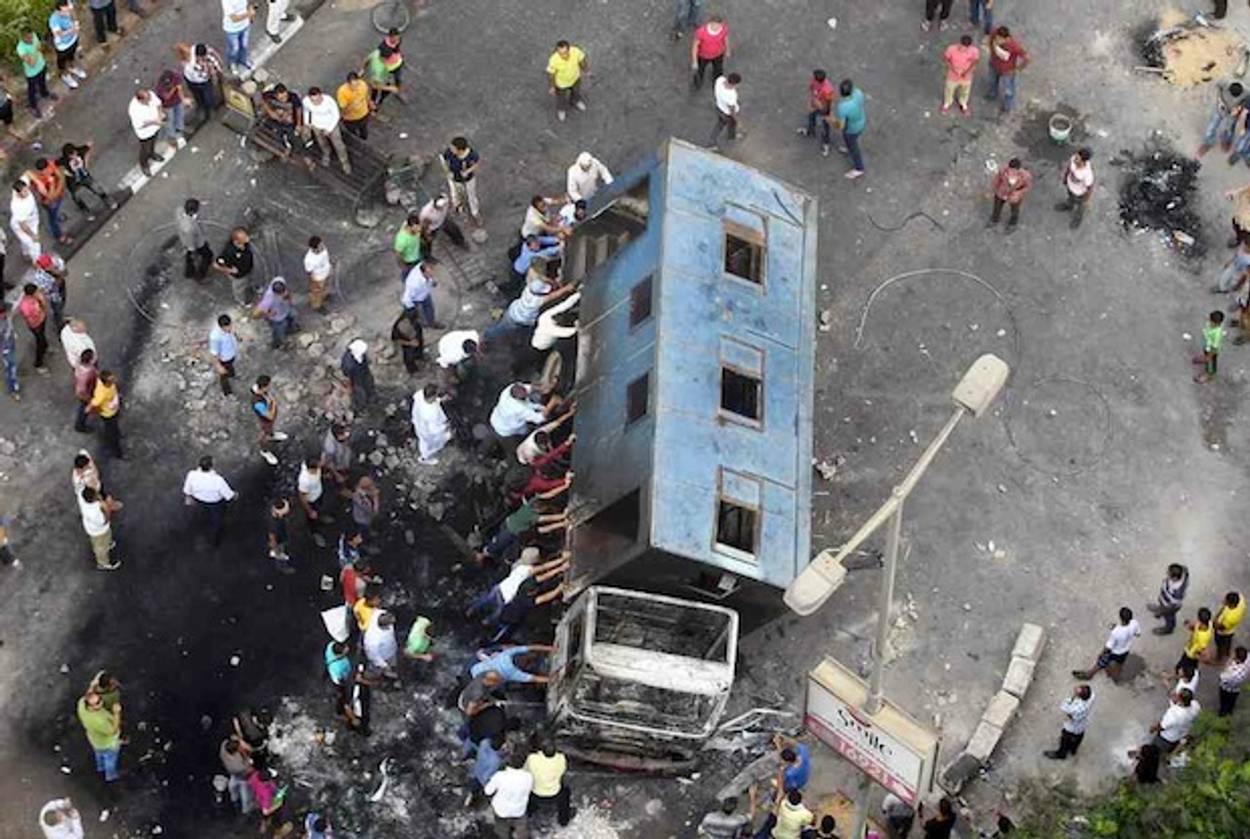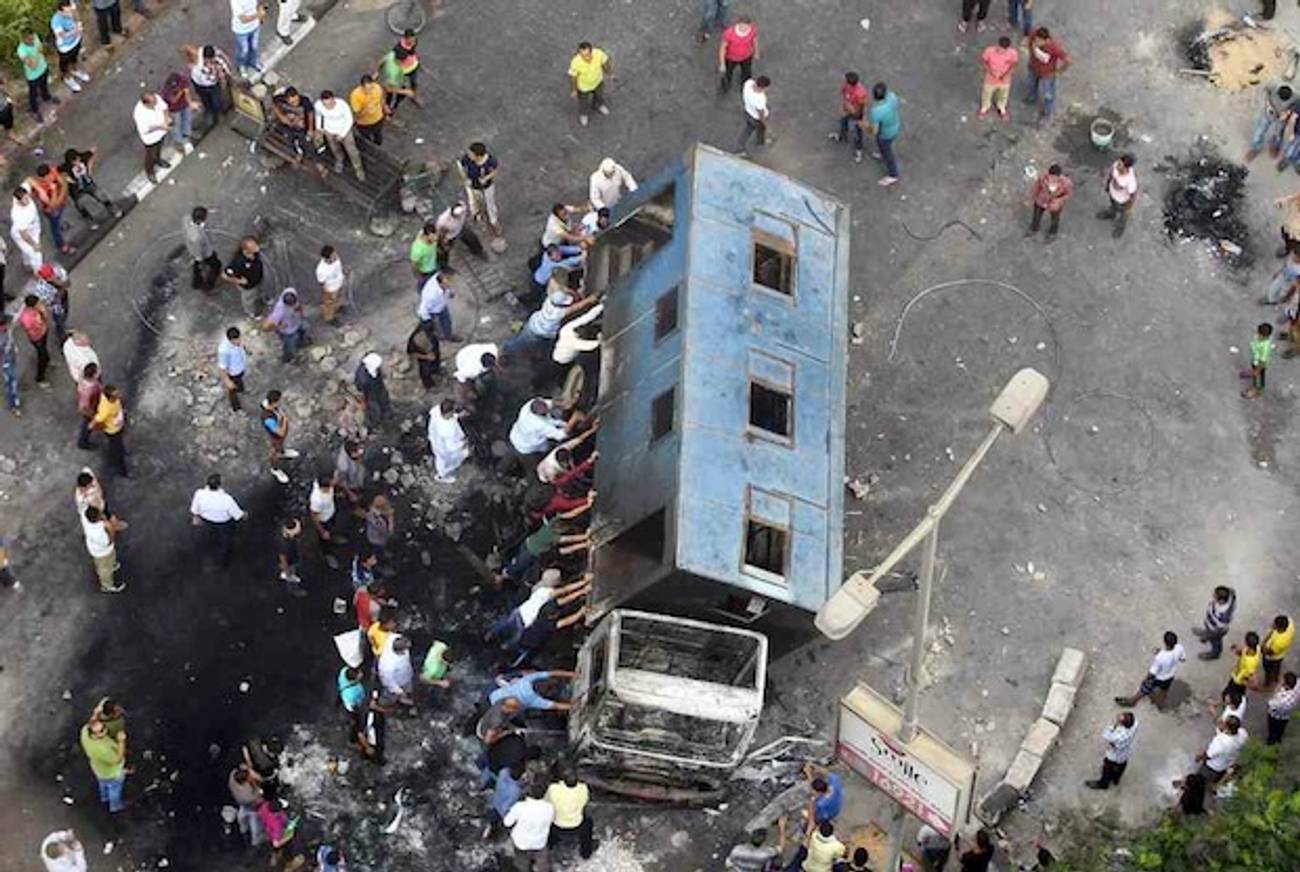Who’s to Blame for Violent Surge in Egypt?
As leaders scramble for answers, new figures place death toll at 525




In the wake of yesterday’s clashes between the Egyptian military and supporters of the deposed Mohamed Morsi, the estimated death toll has surged from a 275 to nearly double that as reports of the brutal crackdown pour in.
Mohamad Fathallah, the Health Ministry spokesman, told the official Al Ahram Web site that the toll so far stood at 525 with 3,717 injured. He said the biggest concentration of killings, numbering 202, had been in the larger of the two protest camps in Nasr City suburb, with 87 recorded in the smaller Nahda Square camp near Cairo University. A further 29 deaths were reported from the Helwan area on the outskirts of Cairo with 207 from other areas around the country.
The Muslim Brotherhood is calling for continued non-violent protest, which seems unlikely given the rage surrounding yesterday’s bloodshed. Among the dead and wounded were a number of Brotherhood leaders and relatives. Reuters spoke with Brotherhood spokesman Gehad El-Haddad:
“We can’t confirm the whereabouts of all of them yet. Two of the top leaders have been shot but are not dead as far as I know. About six of them have lost their sons and daughters,” he said. “It’s a bad blow, a very strong blow.”
He added: “It’s not about Mursi anymore. Are we going to accept a new military tyranny in Egypt or not?”
Yesterday, we noted that the United States had warned against a military crackdown on the pro-Morsi encampments for fear that…well…what happened yesterday would happen and delegitimize both the Egyptian military as well as the American financial support of it. The Washington Post editorial board went as far as to claim that United States was complicit in the bloodshed yesterday because it had failed to take a stronger enough stand against the military’s human rights violations and failed to designate the military takeover “a coup.”
Because of those decisions, the Obama administration is complicit in the new and horrifyingly bloody crackdown launched Wednesday by the de facto regime against tens of thousands of protesters who had camped out in two Cairo squares.
The prevailing narrative has been that the violence has been the fault of the military, but an interview between Foreign Policy and Egyptian ambassador to the U.S. Mohamed Tawfik isn’t absolving the Muslim Brotherhood of its role in the escalation.
FP: Do you blame the Muslim Brotherhood for the violence today?
MT: No doubt in my mind that the government did everything in their power to convince the Brotherhood that these sit-ins could not continue. There were serious reports of people abducted, people tortured, bodies left around the sit-ins. We found a mass grave inside, and they are still digging up the bodies. This stopped becoming an issue of freedom of expression, and became a locus of criminal behavior, and therefore it had to be cleared away. No doubt in my mind that it’s the Brotherhood’s fault.
Adam Chandler was previously a staff writer at Tablet. His work has appeared in the New York Times, the Wall Street Journal, the Atlantic, Slate, Esquire, New York, and elsewhere. He tweets @allmychandler.